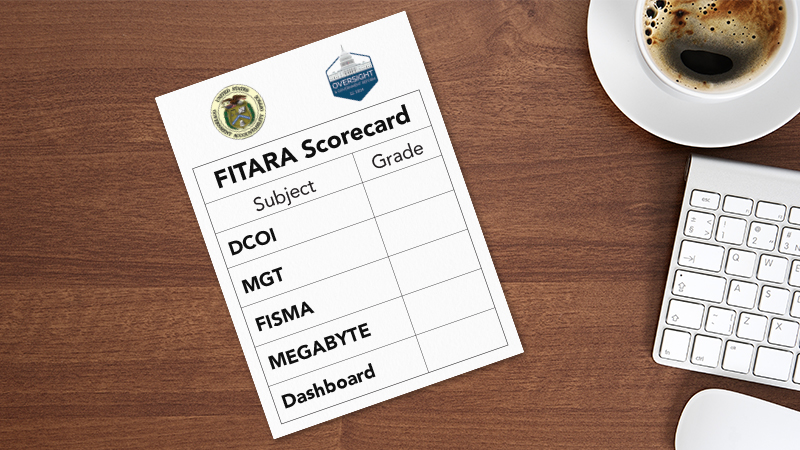
The downward trend in overall agency grades on the 17th edition of the FITARA Scorecard issued by Rep. Gerry Connolly, D-Va., today reflects two big changes in how the latest scorecard was assembled – one of which Federal agencies can do something about going forward, and another that they cannot.
Goodbye Data Centers
First, the latest version of the scorecard gets rid of – for grading purposes – the longstanding category on how well agencies are doing on data center consolidation.
Over the past several scorecards, most agencies had boosted that category grade to an “A,” which helped out their overall grades. On the 16th edition of the scorecard issued last September, 22 agencies earned the “A” grade in the category, and the only two that did not – the Departments of Defense and Justice – earned “B” grades.
Hello Cloud Computing
Second, the 17th edition of the scorecard includes the all-new scoring category of cloud computing – and most agencies flunked in that category out of the gate.
Of the 24 agencies ranked on the scorecard, the Defense Department earned an “A” grade in the cloud category, and the Interior Department earned a “C” grade.
Six other agencies – U.S. Agency for International Development, Health and Human Services, Justice Department, Environmental Protection Agency, General Services Administration, and Agriculture Department – received “D” grades in the cloud computing category.
The remaining 16 agencies received failing grades in the new category. Notably, those 16 include two agencies whose overall scores slumped by two full letter grades each – the State Department and the Education Department.
The scorecard released today says that the cloud computing score relies on how agencies are meeting five requirements of the Office of Management and Budget’s Federal Cloud Computing Strategy issued in 2019 that aims to speed agency cloud adoption.
Notably, none of those five requirements appear to directly correlate with the amount of cloud services that agencies may actually be using.
“The five requirements focus on ensuring that the CIO oversees modernization, agency cloud-related policies and guidance are iteratively improved, service level agreements are in place, service level agreement contracts are standardized, and visibility in high value asset contracts is continuously ensured,” today’s scorecard reads.
Scores for the cloud computing category represent a “percentage of key procurement requirements satisfied as assessed by” the Government Accountability Office as of January 2024, the scorecard says.
The cut-off percentage for a “C” grade in the category appears to be 70 percent, and a 60 percent rating was enough to avoid a failing grade. Fifteen of the 24 agencies graded on the scorecard were at 50 percent or less in the cloud computing category.
Other Changes
Other scorecard changes are also contributing to the lower trend in grades. Those include a shrinking of the number of scoring categories to six, from the previous total of seven categories.
In addition, only four of the grading categories from the previous scorecard – Agency CIO Authority Enhancements, Modernizing Government Technology Act, Cyber, and progress on transitioning to the Networx communications contract – remain in the new scorecard.
New to the scorecard on its 17th edition are the cloud computing category, and the CIO Investment Evaluation category. The latter category featured 14 “A” grades for agencies, and three “B” grades.
Tech Tonic to Feature FITARA Awards March 14
For a further discussion of the latest scorecard results, remarks from Rep. Connolly, and presentation of MeriTalk’s FITARA Awards to individual agency CIOs, please mark your calendars for March 14 for Tech Tonic – the next evolution of Cyber Smoke and the happiest hour in government IT. Please join us at Morton’s The Steak House on Connecticut Ave in D.C. from 5 p.m. to 9 p.m. for all the fun and friends.
